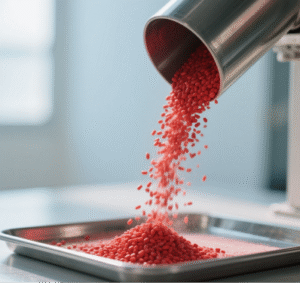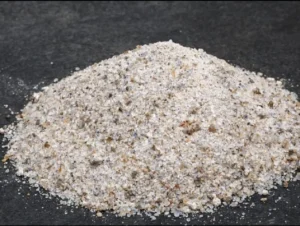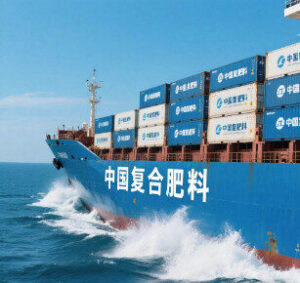Turkey is the world’s seventh-largest fertilizer consumer and a gateway to the broader Black Sea and Middle East markets. Over the last decade, Ankara has quietly rebuilt its entire fertilizer rulebook, which now mirrors—and sometimes anticipates—EU requirements. Foreign suppliers who treat the country as a “standard developing market” may experience delayed shipments, refused registrations, or delisted products. Below is a concise yet comprehensive roadmap explaining what is regulated, who regulates it, and how to stay compliant in 2025–26.
1. Why Turkey now feels “European”
- Custom-Union 2.0: The 1995 EU-Turkey Customs Union (Decision 1/95) requires Ankara to adopt nearly all EU technical legislation.
- 2021 Framework Law: The Product Safety and Technical Regulations Law (No. 7223) introduced EU-type market surveillance, recall powers, and fines of up to ₺2 million.
- Green Deal alignment: To protect its €42 billion agricultural export trade with the EU, Turkey adopted EU cadmium limits, contaminant thresholds, and digital traceability measures before some EU member states did.
2. The Three Pillars of Fertilizer Legislation
| Pillar | Scope | Key obligations |
| Agricultural Fertilizers Regulation (2004) | All “chemical” NP/NPK/straight fertilizers | Facility licence, product registration, Turkish NPK labelling, heavy-metal ceilings (e.g. Cd ≤ 20 mg/kg P₂O₅). |
| Organic & Microbial Fertilizers Reg. (2018) | Organic, organo-mineral, bio-stimulants, microbial inoculants | Separate registration dossier, GMO-free declaration, pathogen absence, minimum 25 % organic matter. |
| Market-Surveillance Reg. (2021) | Every bag sold inside Türkiye | Annual import licence, QR-coded label, upload of each batch to the National Fertilizer Tracking System (UFS) within 7 days, mandatory recall insurance. |
3. KKDIK: The Turkish REACH
All substances placed on the Turkish market in quantities greater than 1 ton per year (e.g., technical-grade urea, phosphoric acid, micronutrient salts, etc.) must be registered under KKDIK:
- The pre-registration deadline was December 31, 2020 (already closed).
- The full registration tonnage bands are 2026 (≥1,000 t/y), 2027 (100–1,000 t/y), and 2028 (1–100 t/y).Only a Turkish legal entity or an Only Representative (OR) may submit a dossier. Foreign exporters without an OR will be automatically delisted after January 1, 2026.
Note: If you sell a blended NPK, you must register each chemically defined raw material. Formulators who rely on their supplier’s KKDIK number must obtain a Letter of Access and keep it on file. GDPP inspectors ask for it during unannounced audits.
4. Licensing and Registration Workflow
| Step | Chemical fertilizers | Organic/microbial |
| 1. Facility | Apply to GDPP for “İşletme Ruhsatı”; attach ISO 9001, TSE or OECD production certificate. | Same + HACCP plan. |
| 2. Product dossier | Composition, granulometry, heavy-metal test from an MAF-authorised lab, draft label, SDS. | Additional biosafety studies, non-GMO certificate, shelf-life data. |
| 3. Registration | 50 days, validity 5 yrs, fee ≈ ₺12 000. | 90 days, validity 5 yrs. |
| 4. Import licence | Annual, per HS-code, ≈ ₺1 600. Upload supplier KKDIK LoA. | Same. |
| 5. Port entry | Customs requires Registration Certificate + Import Licence + lab analysis report (≤ 6 months old). | Same + phytosanitary if >5 % organic carbon. |
- The 2024 Rule Changes You May Have Missed
- Banned raw materials: Alkali slag, calcined phosphate, and partially soluble phosphate rock are now prohibited in organo-mineral blends. The six-month transition period ends on September 30, 2025.
- Cadmium: A draft regulation is expected in Q4 of 2025 that will lower the limit to 40 mg/kg P₂O₅ for all fertilizers, the same limit as in EU 2019/1009.
- Digital label: Starting January 1, 2026, every bag weighing 5 kg or more must carry a DataMatrix linking to the UFS batch record.
6. Market Surveillance Reality Check
- Inspection frequency: One in every 250 containers is physically sampled. The failure rate in 2023 was 8%.
- Top failures include cadmium excess, false NPK claims, unregistered microbial strains, and missing Turkish warning sentences.
- Penalty range: ₺50,000–₺500,000, plus a forced recall. Criminal charges are possible for adulteration.
- Importer blacklist: Three offenses within five years results in a one-year import ban.
7. Opportunities and Strategic Tips
- Bio-sector boom: The government pays farmers ₺75/ha to use registered biofertilizers, and demand has increased by 28% year over year.
- Contract Manufacturing: Several idle TSE-approved plants in Izmir and Adana are seeking tolling partners, which is easier than building from scratch.
- QDPR (Turkish “CE” mark): After 2026, EU-type fertilizer products may be fast-tracked if they are already EU 2019/1009 certified. It is worth lobbying for mutual recognition.
- Local presence: Set up a liaison office or appoint an OR. Regulators rarely communicate in English, and all appeal deadlines are 30 days. —
8. Checklist for 2025 Compliance
☐ Identify every substance in your blend that exceeds 1 ton per year and verify its KKDIK status.
☐ Re-calculate cadmium vs. the upcoming 40 mg/kg limit.
☐ Redesign the label to include the Turkish license number, batch ID, QR/DataMatrix code, and importer address.
☐ Book laboratory slots (MAF-authorized labs are fully booked from September to December).
☐ Register as an OR or incorporate a Turkish entity before January 1, 2026.
☐ Budget 5% of the FOB value for regulatory costs, including registration, testing, and surveillance.
Bottom line
Turkey transitioned from a paper-based, low-surveillance system to a fully digitized, REACH-compatible system in less than five years. The grace period ends on December 31, 2025. After that date, only products with complete KKDIK registration and UFS data will clear customs. Foreign firms that invest in proper compliance now will enter 2026 with a clean database record, a shortlist of approved importers, and—most importantly—no disruption to one of the few global fertilizer markets still experiencing positive volume growth.







